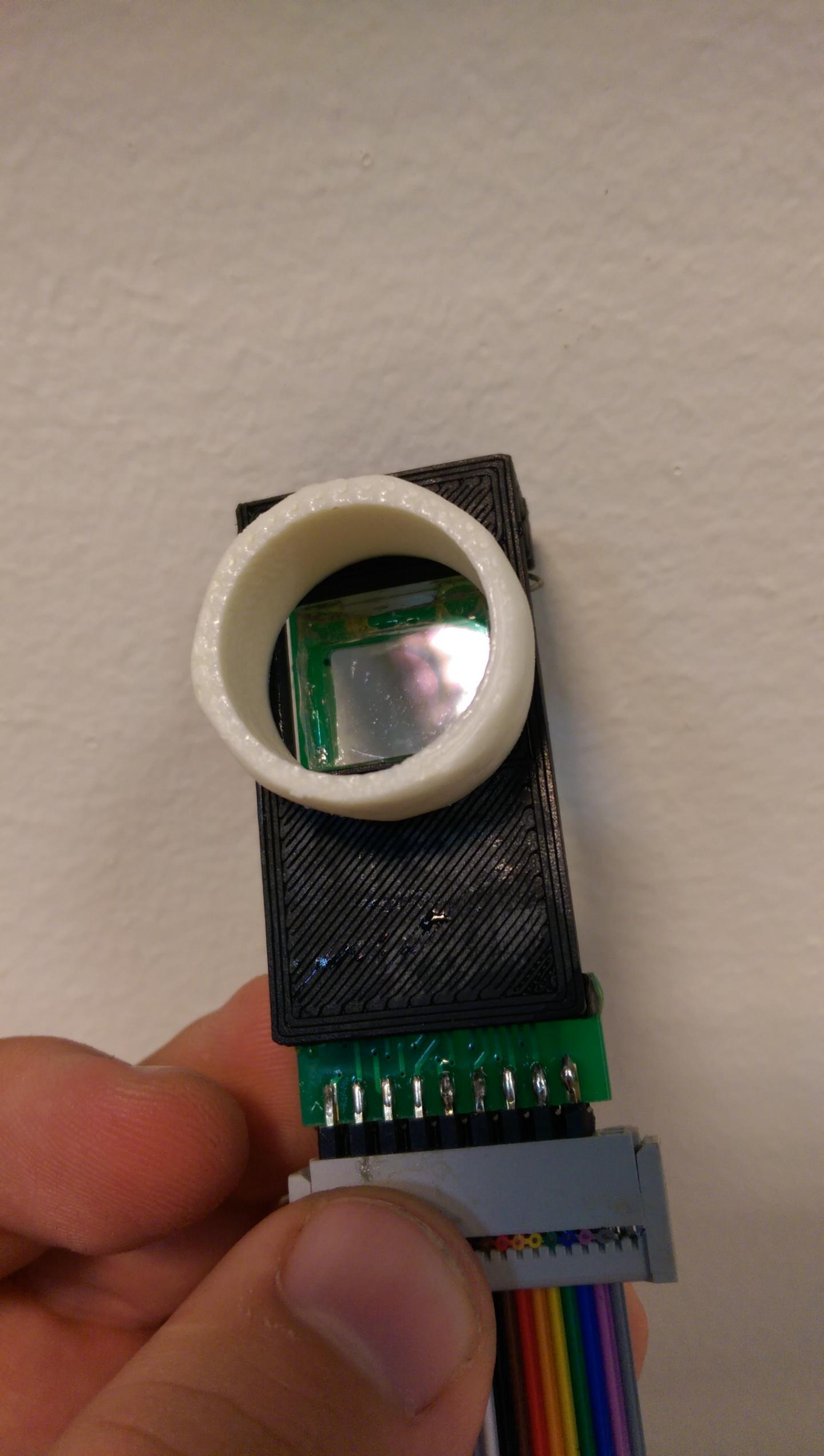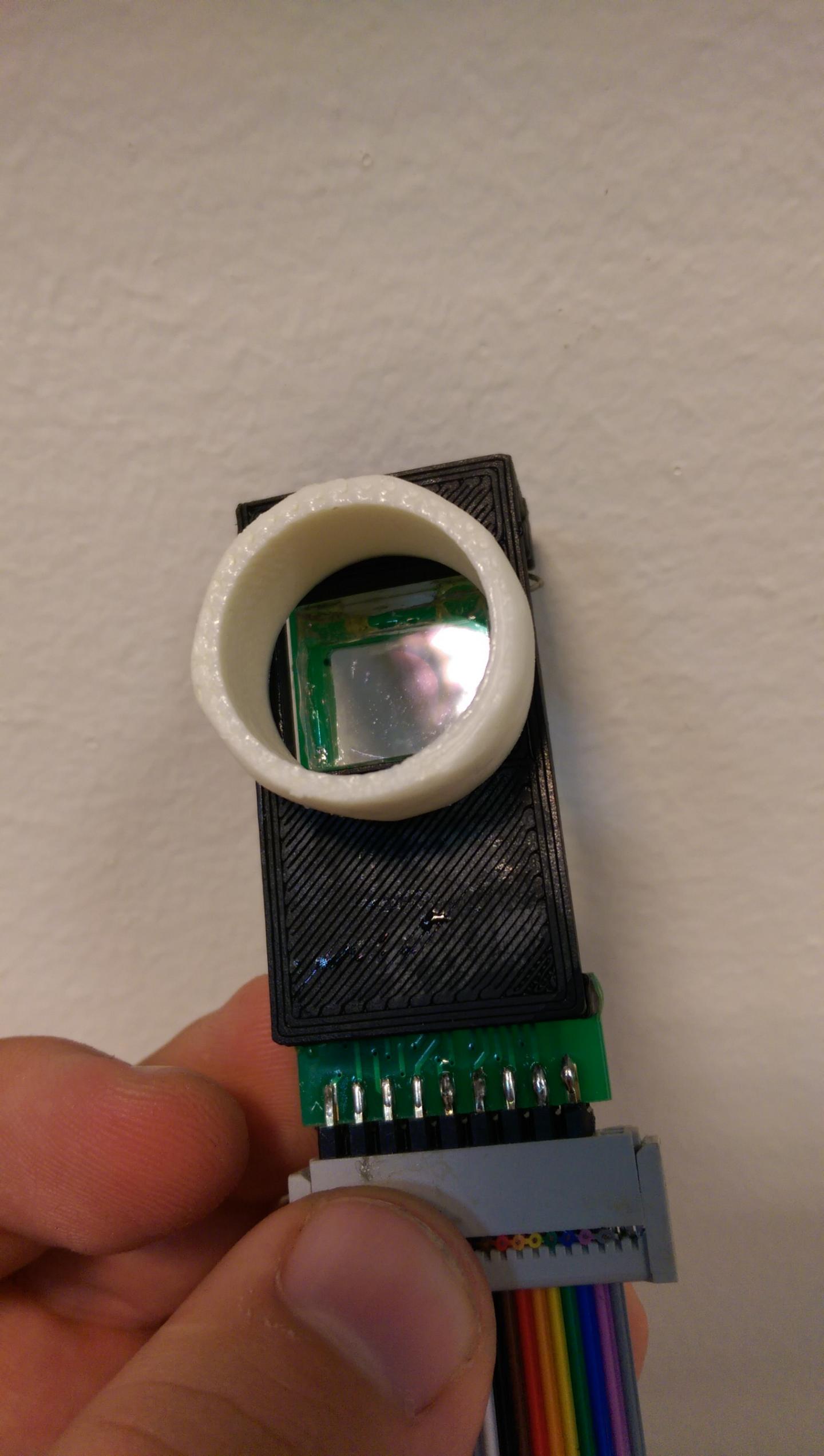
Credit: Ben-Gurion U.
BEER-SHEVA, ISRAEL…September 13, 2017 – Researchers at Ben-Gurion University of the Negev (BGU) have developed miniaturized hyperspectral technology as an add-on for a standard camera that will generate superior quality images and video faster and at a lower cost than currently available commercial devices.
Hyperspectral cameras process and analyze information at different light wavelengths on the electromagnetic spectrum, capturing extremely high quality spatial and resolution images beyond what the unaided human eye can see. The technology is used in a wide range of industries including homeland security surveillance, medical imaging, petroleum, mining, aerospace, and agriculture.
The BGU device, developed by four BGU researchers, can repurpose a standard camera for a plethora of applications, including micro-detection of cancer cells or measuring contaminants in water, with close to 100 percent precision. At only a few tens of microns wide, thinner than a human hair, the device is easy to produce, using commonly available materials such as liquid crystal.
The global hyperspectral imaging systems market is projected to reach $12.71 billion by 2021, according to a Markets and Markets Report published in January. Netta Cohen, chief executive officer of BGN Technologies, the technology company of BGU, says "the hyperspectral marketplace has increased significantly in the last five years. This new invention, with a commercial partner, will help lower the cost of hyperspectral cameras and make it far more accessible to professional photographers. It will also help expand the use of hyperspectral imaging technology in the electronic test and measurement (T&M) instrument market."
Prof. Adrian Stern, head of the BGU Electro-Optical Engineering Unit, says, "The technology uses our software based on 'compressive sampling,' which minimizes collection of redundant data during image capture, making the camera at least 10 times faster and creates spectral images of a markedly superior quality." . Compressive sampling captures signals and images from much fewer samples or measurements than the traditional Nyquist-Shannon sampling theorem on which cameras and sensing devices have been based for 100 years.
"Instead of using a large and heavy prism inside the camera, we developed a very small, tunable filter and sensor that are activated by electrical current," says Prof. Dan Blumberg, BGU vice president and dean for research and development, who is also part of the research team. "Every time the current changes, a photo is taken."
The development team also includes Prof. Stanley Rotman of the Department of Electrical and Computer Engineering and Dr. Yitzhak August, a former Ph.D. student in the Electro-Optical Engineering Unit.
###
About BGN Technologies
BGN Technologies is the technology company of Ben-Gurion University, Israel. BGN Technologies brings technological innovations from the lab to the market and fosters research collaborations and entrepreneurship among researchers and students. To date, BGN Technologies has established over 100 startup companies in the fields of Biotech, Hi-tech and Cleantech and initiated leading technology hubs, incubators and accelerators. During the past decade, BGN Technologies focused on creating long-term partnerships with multinationals such as Deutsche Telekom, Dell-EMC, Lockheed Martin and PayPal, securing value and growth for Ben-Gurion University and the Negev region.
About American Associates, Ben-Gurion University of the Negev
American Associates, Ben-Gurion University of the Negev (AABGU) plays a vital role in sustaining David Ben-Gurion's vision: creating a world-class institution of education and research in the Israeli desert, nurturing the Negev community and sharing the University's expertise locally and around the globe. As Ben-Gurion University of the Negev (BGU) looks ahead to turning 50 in 2020, AABGU imagines a future that goes beyond the walls of academia. It is a future where BGU invents a new world and inspires a vision for a stronger Israel and its next generation of leaders. Together with supporters, AABGU will help the University foster excellence in teaching, research and outreach to the communities of the Negev for the next 50 years and beyond. Visit vision.aabgu.org to learn more.
AABGU, which is headquartered in Manhattan, has nine regional offices throughout the United States. For more information, visit http://www.aabgu.org.
Media Contact
Andrew Lavin
[email protected]
516-944-4486
Home
Original Source
https://aabgu.org/new-hyperspectral-technology/





